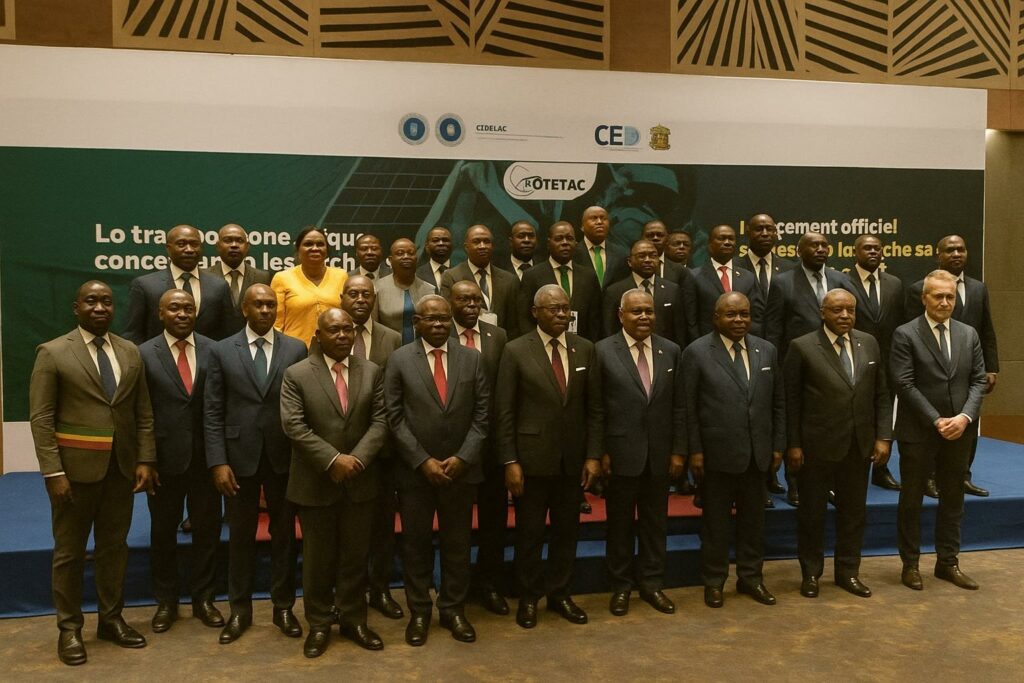Scientific Diplomacy in Brazzaville
The glittering conference hall of the Centre d’excellence d’Oyo momentarily shifted the geopolitical centre of Central Africa on 3 November. Flanked by researchers in white coats and diplomats in dark suits, Prime Minister Anatole Collinet Makosso pressed the symbolic switch that brought the Réseau pour la recherche sur la transition énergétique en Afrique centrale (ReTEAC) to life. The gesture carried more than ceremonial weight: it expressed a shared resolve among member states of the Economic Community of Central African States to anchor the energy transition in peer-reviewed science rather than slogans. Officials from Burundi, Cameroon, the Central African Republic, Equatorial Guinea, São Tomé and Príncipe and the Republic of Congo signed the founding memorandum, signalling an uncommon regional consensus.
EU Financing and Multilateral Alignment
Entirely underwritten by the European Union through its Programme for the Promotion of Renewable Energies and Rural Electrification, ReTEAC epitomises the shift in development finance from isolated grants to platform thinking. Brussels channels resources via the United Nations Industrial Development Organization and the nascent Central African Centre for Renewable Energy and Energy Efficiency, allowing funds to circulate within existing African institutions rather than bypass them. European diplomats in Brazzaville underscored the political significance of this architecture, arguing that scientific interdependence can temper the volatility often associated with commodity-based economies. Their view dovetails with the Congolese Government’s strategy, articulated in its National Development Plan, to diversify away from hydrocarbons while preserving macro-economic stability.
Oyo Centre of Excellence: A Strategic Node
Nestled in the Cuvette Department, the Oyo Centre of Excellence has evolved from a training institute into a fully-fledged innovation hub equipped with solar laboratories, a prototype biogas unit and a data centre connected to regional universities. By hosting the ReTEAC secretariat, the facility acquires continental stature, reinforcing Congo-Brazzaville’s image as a convenor rather than a mere beneficiary of external aid. In his address, Prime Minister Makosso praised President Denis Sassou Nguesso’s ‘visionary insistence’ on knowledge-led growth, noting that scientific clusters such as Oyo can ripple benefits across the two million inhabitants of CEEAC. Researchers interviewed on site welcomed the upgrade: “We finally have a common repository for meteorological, hydrological and socio-economic data, which will accelerate peer-review,” said Dr Bénédicte Ombandza, head of the centre’s modelling unit.
Bridging Urban-Rural Electricity Gaps
Despite abundant rivers, sunlight and natural gas, Central Africa still records one of the lowest electrification rates on the continent, with stark disparities between capital cities and hinterlands. ReTEAC’s founding charter therefore obliges member institutions to focus at least fifty per cent of their projects on off-grid solutions. Solar mini-grids in northern Congo and small hydro schemes along Cameroon’s Sanaga basin are already earmarked as pilots. Ezéchiel Nibigira, current chair of the CEEAC Commission, argued that scientific coordination can convert such isolated trials into scalable policy recommendations. Early drafts of the network’s roadmap suggest that open-access journals and annual benchmarking reports will become mandatory, introducing a level of transparency that investors frequently request before allocating capital to rural electrification.
Legal and Economic Implications for CEEAC
The emergence of a transnational research entity inevitably raises questions of intellectual-property management, standards harmonisation and dispute resolution. Legal advisers attached to the project are exploring a protocol modelled on the African Continental Free Trade Area’s Annex on intellectual property, seeking to balance proprietary incentives with the need for public access to clean-energy innovations. Economists consulted during the launch estimate that synchronised regulatory frameworks could shave up to eighteen months off the approval timeline of cross-border power-purchase agreements, lowering transaction costs in a region where the weighted average cost of capital remains above ten per cent. In the medium term, a more predictable legal environment is expected to attract blended-finance vehicles, thereby complementing the EU grant with concessional loans and private equity.
Towards an Evidence-Based Energy Transition
By weaving together academic excellence, multilateral finance and local ownership, ReTEAC may well redefine the narrative of Central Africa’s energy transition. Rather than framing the endeavour as a sacrifice for economic growth, policymakers present it as a knowledge dividend capable of spawning new industries and skilled employment. The next litmus test lies in the network’s capacity to deliver peer-reviewed outputs within its first year—a requirement explicitly stated in its performance indicators. Yet the mood in Brazzaville remains confident. As the inaugural session drew to a close, conversations shifted from ceremonial protocol to research proposals on green hydrogen and grid-connected e-mobility. In that quiet pivot from speeches to spreadsheets, observers caught a glimpse of a region determined to translate political will into measurable kilowatt-hours, one laboratory at a time.

